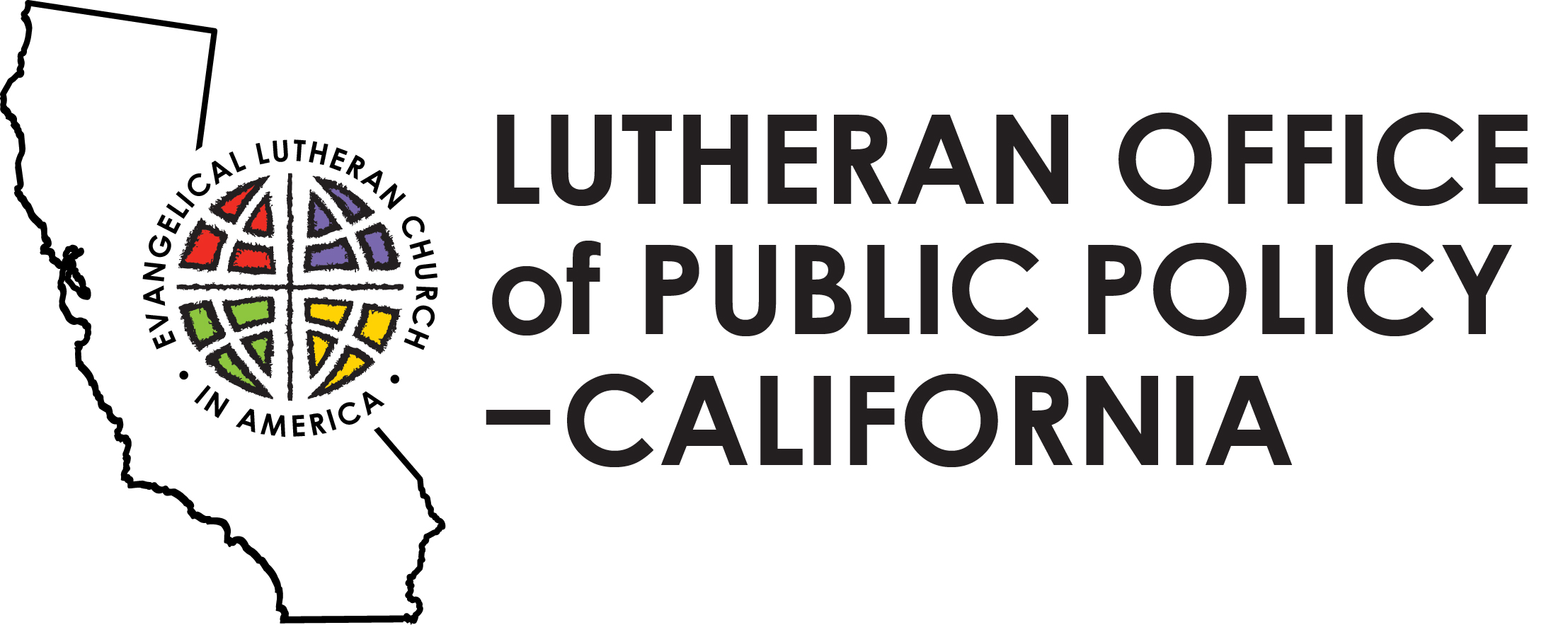California has the highest rate – 1 in 5 – of child poverty in the U.S. despite being the largest subnational economy in the world.
That’s 1.9 million children living in poverty in our state. What’s more, 450,000 children live in deep poverty, meaning their families earn less than $12,500 per year. That is more children than there are Lutherans in our state.

Why is childhood poverty such an issue in our state given our economy and our natural and cultural resources?
Housing costs in both urban centers and rural areas account for more than 30% of the majority of Californian’s incomes. Immigration, too, plays a role because immigrants are much more likely to live in poverty than non-immigrants, and some immigrants are ineligible for government safety net programs. Without the social safety net, poverty in California would be much higher.
Most Californians living in poverty work, but 1 in 3 California workers have a low-wage job. In a single-income household with a parent making $11 an hour, working 40-hour weeks, 50-weeks out of the year, that’s $22,000 to live on. The cost of housing alone for one year as a renter in California averages $16,800.
All of these burdens are disproportionately felt by the state’s people of color: about one-third of Hispanic children and more than one-quarter of black children live in poverty, compared with 12 percent of white children. Consider, too, that undocumented farm laborers are often underpaid for their work, and seasonal jobs require them to move around in search of an income.

What are the costs of childhood poverty?
The moral costs of childhood poverty are reprehensible. Children need stable, safe, secure environments to grow, play, and explore our world. Poverty threatens social, economic, housing, and food security. Not only this, but the first few years of a child’s life are developmentally critical to health and economic outcomes later in that child’s life.
But there are economic and social costs as well. Children growing up in poverty have less access to high-quality education, appropriate nourishment, healthcare, and financial education. They are also more frequently exposed to environmental toxins.
What do Lutherans have to say?
Our churchwide social statement on Economic Life states:
“Economic life pervades our lives—the work we do, the income we receive, how much we consume and save, what we value, and how we view one another. An economy (oikonomia or “management of the household”) is meant to meet people’s material needs. The current market-based economy does that to an amazing degree; many are prospering as never before. At the same time, others continue to lack what they need for basic subsistence. Out of deep concern for those affected adversely, we [see a] moral imperative to seek sufficient, sustainable livelihood for all.
“When we pray in the Lord’s Prayer, ‘Give us this day our daily bread,’ we place ourselves in tension with economic assumptions of our society. Rather than being self-sufficient, we need and depend on what God gives or provides through people, practices, and systems. ‘Daily bread’ is not earned by efforts of individuals alone, but is made possible through a variety of relationships and institutions.1 God gives in ways that expand our notions of who “us” includes, from people close at hand to those around the globe. In stark contrast to those who seek unchecked accumulation and profit, our attention is drawn to those who are desperate for what will sustain their lives for just this day.”
Our policy solutions include strengthening the public safety net, increasing access to early childhood education, and expanding rental assistance and healthcare coverage.
Alongside the End Child Poverty in California Coalition, we advocate for policies that strengthen the public safety net, increase access to early childhood education, and expand rental assistance and healthcare coverage for homeless families and families living in poverty.
